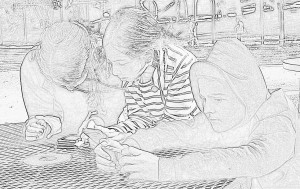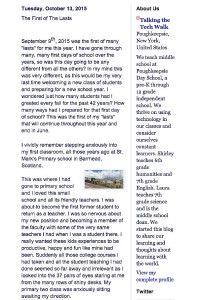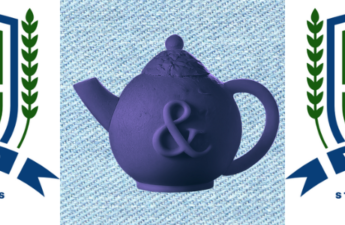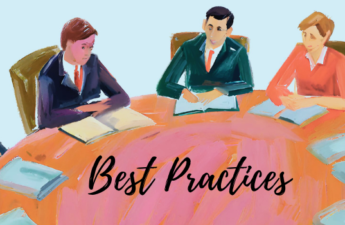If you’re reading this online then you are engaged in social media. You are consuming.
I’ve been thinking about education and social media not so much as an option but as an opportunity and an obligation – something we owe ourselves as learners and something we owe our students as teachers.
 We all know that we live an era of extraordinary change and that children growing up today are in a radically different landscape for learning that those born before say 1980. Even in the last ten – five – years we’ve seen enormous change. And every week there’s a new app or tool that brings new potential, power and possibility.
We all know that we live an era of extraordinary change and that children growing up today are in a radically different landscape for learning that those born before say 1980. Even in the last ten – five – years we’ve seen enormous change. And every week there’s a new app or tool that brings new potential, power and possibility.
Our obligation as teachers is to help our students thrive in this changed and changing world.
If we want a culture of learning then we need to embrace change when and if it provides opportunities for growth and agency for our students and ourselves.
We need to be there for our students. We need to learn together what it means now to ground our learning in our values.
The PDS mission calls us to develop educated citizens with a passion for leadership. That includes the online world of the internet and digital social media. And to do that we need to model what we mean by educated citizens and leadership. And that means participation. The digital universe is here to stay. It is the world in which our students will live their lives. Unless they choose to go right off the grid they have no choice but to learn to navigate and manage ever-changing and uncharted territory. In anchoring conduct in ethical ways they – and we – need all the help they can get.
What gets in the way sometimes is our understandable fear of the unknown.
It has us clinging to the status quo. It’s easy for us to embrace digital citizenship for example. That means an emphasis on keeping kids safe and ensuring they understand the how to navigate the internet and social media in responsible ways. That’s important. But what we really need to develop in ourselves and our students is digital leadership. And that means using these extraordinary tools to make a positive and creative difference in the world.
It means having conversations. It means understanding. It means having purpose and being intentional about what we do. It means participation and active learning. It is not good enough to stay on the sidelines and either turn a blind eye or snipe.
This is a golden age for learning. The availability of information and – most importantly – the extraordinary opportunity to create and connect in powerful ways provide a magic carpet for learning for those who care to climb aboard.
Learning is a deeply social activity and online learning is no different.
But learning is not a one way street – it’s not the one way transmission of information. To engage as a learner means we have to participate and not merely as consumers. It means going beyond checking the inbox and info stream.
We’ve known for years that children learn by talking and writing (doing and producing) as well as by reading and listening (absorbing and consuming). Progressive educators have always accepted that as basic. The same is true for adults. The act of speaking and of writing helps us to think, understand what we know and take us forward to creating new knowledge.
We now have a whole new arena in which to do that learning. We should not wish to keep our knowledge and understanding to ourselves. As educators we should rather choose to share and contribute. It is what we ask of our students every day. As educators we need to model what it means to be a learner and to take the risk of expressing our thinking and sharing it with others in the reciprocal process known as learning.
This is particularly true in education where the voices of thoughtful experienced educators is so often absent from the debate about school reform. Teachers voices are drowned out in the debate over the future of education. Here is my plea: Progressive educators – get out there and be heard. You have stories to tell. Your voice, your understanding, your experience matter.
education where the voices of thoughtful experienced educators is so often absent from the debate about school reform. Teachers voices are drowned out in the debate over the future of education. Here is my plea: Progressive educators – get out there and be heard. You have stories to tell. Your voice, your understanding, your experience matter.
I am so grateful for the extraordinary people who share their work, their thinking and their ideas with me and the world online. I take advantage of their experience to enrich and inform my own. Best of all – it is literally at my fingertips.
I love learning about – and from – teachers at PDS. I do that at the lunch table, in conversations, at meetings and by dropping by classes and seeing what is happening.
I also learn from reading their work online and I enjoy promoting it out into the world. Extraordinary things happen at PDS everyday. Others can learn from their experience and example about how to enrich the world of young learners. PDS stories demonstrate daily that school does not have to be the traditional treadmill. Learning can indeed be joyful. Let’s spread that word!
Tweets and posts from teachers provide examples of exemplary learning for those who care to pay attention. They present illustrations of how learning can be. They show examples of our mission at work in classrooms, studios, playgrounds, the gym and out there in the world. Teachers share what they do, what they know and what they think. The more voices and perspectives the richer my learning. And I find it invaluable.
This week I read Shirley’s reflections on her long career as a teacher. It added detail and depth to the many conversations she and I have had over the years. Among so many things I routinely get leads from Jake about local history, from Malorie about poetry, from Jenn about art and from Jill about health and wellness. And there are so many others in our community who contribute to the public knowledge and to my learning. These teachers ask their students to connect with the world as a part of their education. Their sharing helps build community and deepen understanding. And they teach and lead by example.
I thank all of you for sharing your worlds and what matters to you. I also get insights into the life of the school that far exceed my ability to be there in the moment.
That after all is how we learn – by doing. We learn by writing, discussing, collaborating, exchanging ideas, research and opinion. It means putting ideas out there into the public arena for others to read, consider, disagree with and comment on.
It means sharing, joining in, being a part of it. It means having an opinion, a story to tell, a point of view to share. If we don’t it means we have turned learning into a one way street. That might be the world of traditional education where knowledge is transmitted, the teacher and textbook talk and the student listens and is silent until its time for the test. But that’s not learning. That’s consumption. We and our students deserve better as a model for what school is.
That’s my point of view. What’s yours? I welcome your thoughts.
Illustration from Flashlight by Lizi Boyd
See also: The New Literacy Ladder: What Rung Are You On? and Social Media and School Leadership and Where Are The Adults?



What happens at your school in terms of social media leadership? Also – you had a question about the #Blimage challenge. I think it moved on a while back but check with Steve Wheeler @timbuckteeth – he’s the one got it going.
Completely agree with the importance of school leaders and leadership on social media. If we don’t help our kids with this who will? How do we speak to those who just don’t see it this way?